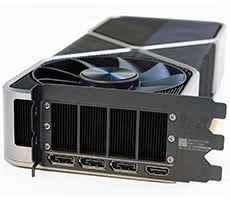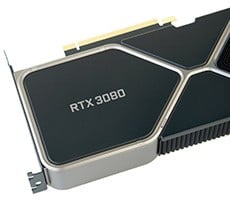A Closer Look At Safari 4: How Does It Stack Up?
Benchmarks

Now that we've seen what all Safari 4 brings to the table, we're going to have a look at speed. Because really, what good is comparing features between browsers before you know which one is the fastest? In reality, an abundance of features is only useful when the browser that those features are in is snappy. In other words, speed is and always will be extremely important when it comes to selecting a browser, and honestly, the feature lists between these modern browsers are so similar that we'd say there's no "one killer app" that makes one browser significantly better than another.


Similar to our Windows XP test, Safari 4 just barely beat the main competition over on the Mac side. You'll also notice that these load times were quicker across the board, which is absolutely a function of testing on a much faster machine. The MacBook Pro we used had the latest version of OS X 10.5 'Leopard' along with a 2.2GHz Core 2 Duo processor, 4GB of RAM and a 120GB (5400RPM) hard drive. In our testing, Safari 4 felt the "lightest" and most nimble of the OS X browsers, which is no surprise at all. In fact, we'd say Safari 4 should smoke the competition on the Mac, since Apple is developing the application for its own operating system and its own hardware.
In practice, we found Safari 4 to be marginally faster in page loading, though--again--the 'Top Sites' homepage and new tabs loaded slower than new tabs and homepages in the other browsers, even slower than Opera 9.6, which also contains a modified version of Top Sites. Again, Safari 4 was the only Mac browser that actually passed the Acid 3 test , proving that Apple's claims were indeed factual.
|

As you can see above, Safari 4 on Windows XP eked out a narrow victory compared to IE 8, Firefox 3.5, Opera 9.6 and Google Chrome. We tested the browsers on Lenovo's S10-2 netbook, which contains a 1.6GHz Atom N270 CPU, 1GB of RAM, a 160GB (5400RPM) hard drive and Intel's GMA 950 graphics. There's no doubt that the general sluggishness of our test machine caused longer-than-expected load times, but considering that "netbooks" are apt to be used quite frequently for "net" browsing, we figured the S10-2 was a solid machine to test on.
We tested by loading each page fresh, with no cached objects, and we ran the test ten times in order to throw out the outliers and average those figures in the middle of the bell curve. A few takeaways from our experience on Windows XP:
We tested by loading each page fresh, with no cached objects, and we ran the test ten times in order to throw out the outliers and average those figures in the middle of the bell curve. A few takeaways from our experience on Windows XP:
- Chrome was the quickest browser to actually load and become usable.
- IE 8 was the slowest browser to actually load up, and its UI was the most clunky; there were far too many address bar icons and tool bar add-ins for use on a small netbook screen.
- The extensions library for Firefox 3.5 is hard to beat; so many developers have created so many amazing add-ons that make browsing in Firefox a real treat.
- Safari 4 was the slowest browser to actually load when it loaded to 'Top Sites.' It took around five to ten seconds to load on our netbook, which was definitely annoying. Top Sites is a great feature, but it's one that doesn't work quickly on slow machines.
- IE 8 was the only browser that's search bar directed searches to Bing (understandably); the rest went to Google, which we prefer.
- Safari 4, once loaded, did actually feel more nimble than the other browsers when loading pages, but opening new tabs seemed faster in Firefox 3.5 and Chrome.
- Safari 4 was indeed the only browser here that passed the heralded Acid 3 test with 100/100.
|

Similar to our Windows XP test, Safari 4 just barely beat the main competition over on the Mac side. You'll also notice that these load times were quicker across the board, which is absolutely a function of testing on a much faster machine. The MacBook Pro we used had the latest version of OS X 10.5 'Leopard' along with a 2.2GHz Core 2 Duo processor, 4GB of RAM and a 120GB (5400RPM) hard drive. In our testing, Safari 4 felt the "lightest" and most nimble of the OS X browsers, which is no surprise at all. In fact, we'd say Safari 4 should smoke the competition on the Mac, since Apple is developing the application for its own operating system and its own hardware.
In practice, we found Safari 4 to be marginally faster in page loading, though--again--the 'Top Sites' homepage and new tabs loaded slower than new tabs and homepages in the other browsers, even slower than Opera 9.6, which also contains a modified version of Top Sites. Again, Safari 4 was the only Mac browser that actually passed the Acid 3 test , proving that Apple's claims were indeed factual.






